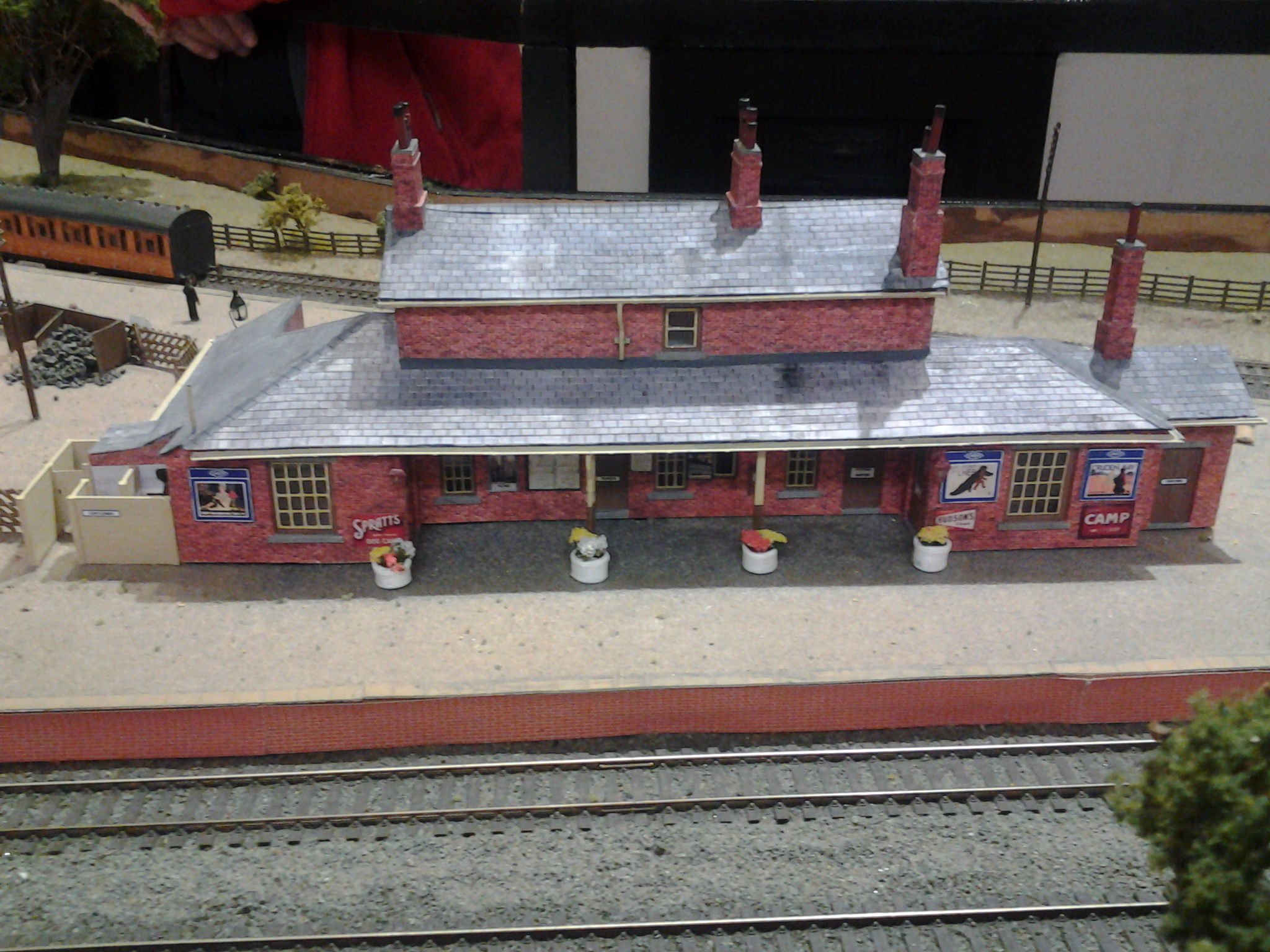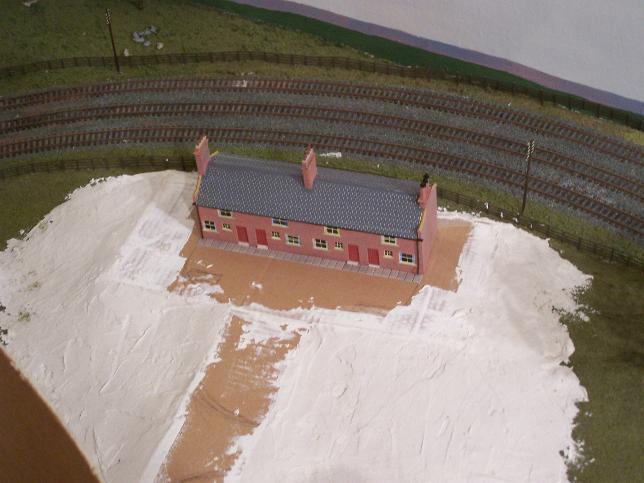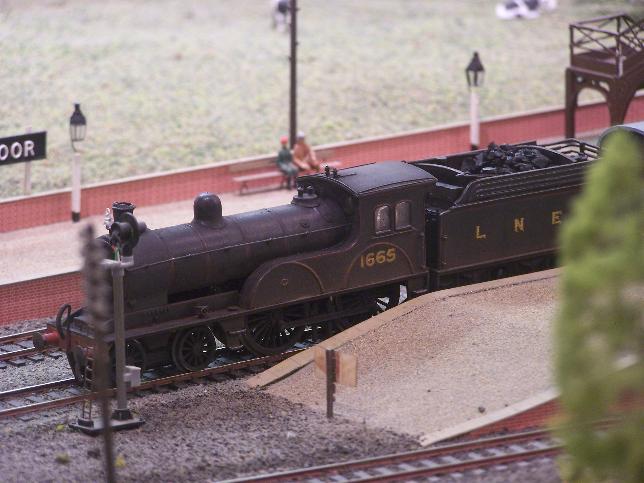Our latest addition is a remodeled pilmore station based on recently acquired period photographs.



Other photographs.













| Fact File | |
| Name | Pilmoor |
| Layout Size | 19ft x 9ft 6ins (approx.) |
| Gauge | OO |
| Station Type | Junction |
| Operating Company | London & North Eastern Railway |
| Period | Late 1930's |
| Area | ECML |
| Buildings | Scratch Built |
| Stock | Kit & Ready To Run |
| Baseboard Construction | Open Frame |
| Track | Peco Code 75 |
History
The former main line station of Pilmoor was situated on the
East Coast Main Line between York and Thirsk and was the testing area for the
very first colour light signals on the ECML. The line was built for the Great
North of England Railway and was opened in 1841. When the branch to
Boroughbridge was opened in 1847 Pilmoor was built to provide a connection with
main line trains. The station was unusual but not unique, in having no road
connection. Passenger numbers were always relatively low due to it's remote
location. When the mainline was widened during the Second World War a new
station building and Station Master's house was built. The station was closed
and demolished in 1958 to make way for widening of the East Coast Main Line,
today all that remains is the Station Master's House. Just south of the old station
and beyond the road bridge, two railwaymans cottages remain. We have modelled one of
the cottages and photographed its location below. The last train to run
between Pickering and Pilmoor was in 1953. A new signal box was built a mile
further south from the station. The line to Brafferton was opened in 1847 to
serve the villages of Brafferton and Helperby. It closed to passengers just over
100 years later in 1950 and was ripped up from the Pilmoor end but not from the
Knaresborough end and freight continued until 1957. The station was demolished
and very little remains apart from a road bridge over the former track bed.
The Layout - not currently open to visitors
Pilmoor represents the ECML as it was in the late
1930's; when the L&NER, along with the rest of the railways, were enjoying
their best years. With the location of the layout many famous trains and
locomotives can be seen, such as; "The Coronation", "The Flying Scotsman" and A4
no 4468 "Mallard". The layout was built from scratch by the team. We have headed
The Flying Scotsman rake of carriages with Flying Scotsman 4472 in recognition of the magnificent
work carried out over that last decade to restore the engine to its former glory.
Stock
We have a wide variety of trains, of varying lengths and
speeds. The trains range from the local suburban trains composed of Gresley non
corridor stock, hauled by tank locomotives through the slow and express freight
trains right up to the most prestigious passenger trains that the LNER were
running in the late 1930's.















